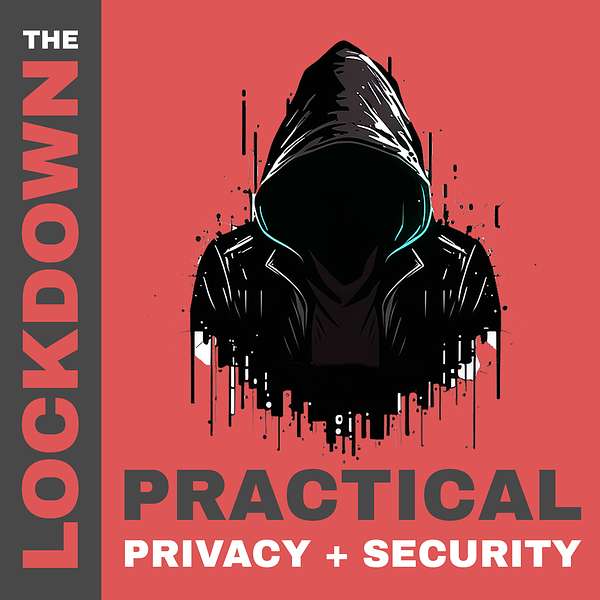
The Lockdown - Practical Privacy & Security
Official Website: https://psysecure.com/podcast/
Welcome to The Lockdown. Privacy doesn’t have to be all-or-nothing. The inability to attain extreme levels of privacy shouldn’t deter one from taking any protective measures at all. The show is hosted by Ray Heffer, an expert in the field of privacy and cybersecurity, with each episode touching on a range of topics such as data privacy, password management, and secure browsing habits. Tin-foil hats are optional!
The Lockdown - Practical Privacy & Security
ZERO TRUST | FRIDAY FIELD NOTES
In this week’s FRIDAY FIELD NOTES, Ray Heffer discusses the Zero Trust security model, a framework that's revolutionizing how organizations protect their critical systems and data. Diving into the depths of cybersecurity, we clear up common myths and misinterpretations surrounding Zero Trust, illuminating its role as not just a defensive strategy but a comprehensive approach to modern threats.
Zero Trust operates on the principle of "never trust, always verify," but what does this mean in practice? Zero Trust doesn't just look outward; it recognizes that threats also come from the inside. By assuming that a breach is not just possible, but has already happened, Zero Trust strategies are uniquely positioned to mitigate damage by insiders, whether malicious or accidental.
Follow on Twitter (X): @privacypod
Support the show: https://www.patreon.com/TheLockdown
This episode was recorded on November 09, 2023
This week's episode:
- Introduction and Brill is living in a Faraday cage
- How we got to Zero Trust by understadning the Cyber Kill Chain
- The Principals of Zero Trust
- Recommended Zero Trust Frameworks
NIST Zero Trust Architecture (SP 800-207): https://csrc.nist.gov/pubs/sp/800/207/final
CISA Zero Trust Maturity Model: https://www.cisa.gov/zero-trust-maturity-model
Cyber Kill Chain: https://www.lockheedmartin.com/en-us/capabilities/cyber/cyber-kill-chain.html
Intro music: The Lockdown
"Security is always seen as too much until the day it is not enough." — William H. Webster
Official Website: https://psysecure.com
Podcast music: The R3cluse